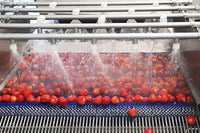Whether you live in a high-rise in Queens or a small town cul-de-sac, the question isn’t whether one person can make a difference—it’s how. With the climate crisis becoming an increasingly visceral part of everyday life, people often assume that big solutions must come from big institutions. But look a little closer, and you'll see that grassroots change—quiet, personal, persistent—is often what turns the tide. If you’re wondering how to help create a more sustainable and eco-conscious community without turning your life upside down, it begins with a shift in mindset and a few smart, personal decisions.
Lead By Example, Not Lecture
Nobody likes a finger-wagger. One of the most effective ways to promote eco-friendly behavior in your neighborhood is simply to embody it—quietly, consistently, and without the sermon. If your neighbors see you tending a compost bin, riding a bike to the store, or installing a rain barrel under your gutter, it sticks with them. These are cues people absorb subconsciously, and over time, the normalcy of sustainable habits spreads farther than any town hall rant ever could.
Cultivate Green from the Ground Up
Starting your own eco-friendly landscaping business isn’t just about digging in the dirt—it’s about planting the right values, too. You’re offering more than just a tidy lawn; you’re creating spaces that conserve water, protect pollinators, and cut back on chemical runoff. Customers are increasingly drawn to native plantings, organic lawn care, and designs that feel alive rather than manicured. Before you grab a shovel, take time to write a solid business plan that spells out your services, pricing structure, and vision for how your green business will grow over time.
Green Your Commute, Then Talk About It Casually
This one’s not about preaching the gospel of cycling to every driver you meet. It’s about being visible, approachable, and relatable in how you shift your transportation habits. If you take the bus instead of driving or choose to walk to the coffee shop, you’re sending quiet signals about what’s possible. When folks ask you about it—because they will—resist the urge to make it a morality tale. Share the real perks: how it saves you money, clears your head, or helps you avoid parking headaches.
Get Into Local Policy Without Losing Your Mind
City council meetings can feel like the death of the soul, but local policy is where sustainability often lives or dies. Whether it’s zoning changes that allow for community gardens or ordinances that incentivize solar panels, these are the gears of real, measurable change. You don’t have to be a political junkie to make an impact—just showing up, writing a formal letter, or joining a neighborhood board can amplify your values at the policy level. And when people see someone “like them” getting involved, it demystifies the process.
Transform Your Yard Into a Mini-Ecosystem
Lawns, for all their cultural clout, are ecological dead zones. If you’ve got even a patch of land, you can start small: plant native flowers, swap in drought-tolerant shrubs, or create a no-mow zone for pollinators. It’s not about having a picture-perfect garden—it’s about creating a space that does more than just look pretty. Over time, these patches become havens for bees, birds, and butterflies, and they’re also conversation starters that can nudge neighbors toward their own backyard rethinks.
Host Low-Waste Gatherings That Don’t Feel Preachy
Barbecues, block parties, and even a casual front porch happy hour—these are golden opportunities to model sustainability without making it the theme of the event. Ditch single-use plastics, offer vegetarian options, and skip the bottled water. People notice when things are done differently and enjoyably, especially when there’s no guilt trip attached. The key is to make eco-friendly choices look like the obvious ones, not the burdensome ones. You’re not converting anyone—you’re just showing them a better way.
Tell Better Stories
It’s easy to get lost in the doom-scroll of environmental catastrophe. What often gets missed are the stories of hope, of personal wins, of resilience at the local level. Sharing those stories—whether it’s your neighbor who installed solar panels or your kid’s school adopting composting—gives people something to believe in. It’s not about ignoring the urgency of the climate crisis, but about keeping people emotionally engaged. Optimism isn’t naivety; it’s fuel. And if you can keep that fire alive in your community, it spreads.
At its core, promoting sustainability isn’t about being perfect. It’s about being intentional, visible, and willing to make choices that reflect the future you want. It’s about forging connections—between people, between people and place—and recognizing that those connections are what drive change. Communities don’t shift because someone shouted the loudest. They shift because enough people nudged things quietly, creatively, and persistently in a better direction. And you? You can be one of them.
Discover the power of nature’s oldest disinfectant with EcoloxTech and explore how hypochlorous acid can revolutionize your sanitation and disinfection needs today!
By Julia Mitchell at Outspiration.net





